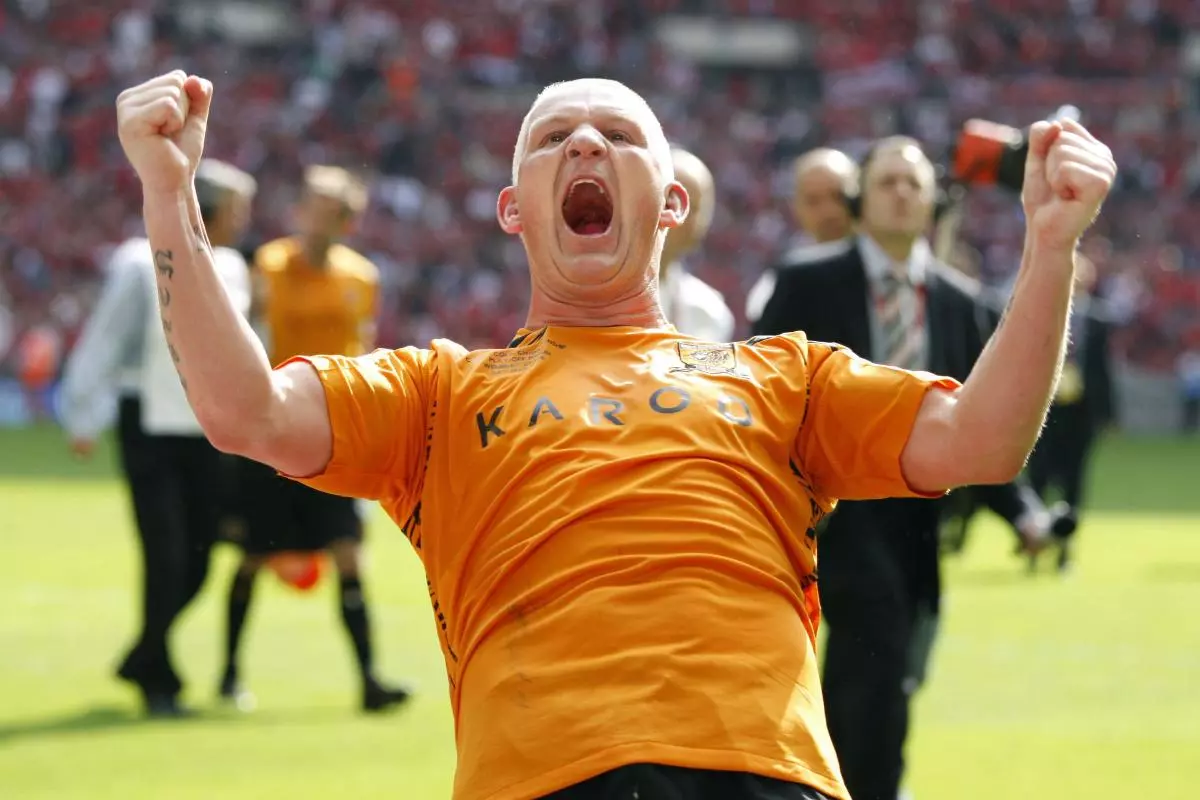Brentford, Hull and seven other clubs who rapidly climbed through the English leagues

Dean Windass celebrates Hull promotion
Football can be incredibly cruel, but at other times it takes you on a journey of pure magic.
With the end of the season approaching and the relegation trapdoors wide open, there will be plenty of fans fearing the worst for their clubs. One relegation can so often lead to another and another.
However, fear not beleagured fans. For while dropping like a stone is possible, so too is rising like a phoenix, as these clubs show.
Wimbledon
AFC Wimbledon
Obviously the official line does not say that. The official line says the club was 'relocated and renamed', specifically to Milton Keynes and MK Dons, but we all know what happened: a club was stolen.
Wimbledon fans did what every other set of fans would do when faced with the same circumstances - sacked off the stolen club and started afresh.
The 2021/22 season saw them relegated back to League Two, but it shouldn't take the shine off an incredible journey.
Fleetwood Town
It is sometimes hard to separate the Fleetwood Town story from the Jamie Vardy story, but the truth is that the Leicester striker played only a minimal part in the rise of the Cod Army.
Jamie Vardy winning the Conference with Fleetwood . Now Premiership Champion with Leicester.Dreams come True. @ftfc pic.twitter.com/4eUbkyKTtZ
— Matt (@MattPuraVida) May 7, 2016
There are actually three incarnations of Fleetwood dating back to 1908, but the current club was only actually formed in 1997. Fleetwood FC had folded a year before, and Fleetwood Wanderers were formed in Division One of the North West Counties Football League. That's the tenth tier of English football. The club's name was immediately changed to Fleetwood Freeport due to a sponsorship deal and they eventually settled on Fleetwood Town in 2002.
By then their rise up the leagues was underway and by the close of the 2005/06 season they were in the Northern Premier Division. Two years later they had reached the Conference.
There their rise stalled until 2011/12 when Vardy fired them to promotion to the Football League.
AFC Bournemouth
The Cherries were in a perilous state in 2008 when they were a League One club. They were forced into administration, deducted 10 points and relegated to the fourth tier. It also meant they started the following season with -17 points. Relegation out of the Football League looked a distinct possibility.
Eddie Howe, who is currently showing his quality at Newcastle, was in charge for 11 of the 12 years between surviving in League Two and being relegated from the Premier League.
Swansea City
There was no real secret to how Swansea did it, though. Simply put, they hired good managers. The likes of Roberto Martinez, Paulo Sousa and Brendan Rodgers cut their managerial teeth at the club.
They have since dropped out of the Premier League, but no one would be surprised to see them back at that level very soon.
Burton Albion
That was where their progress stalled and they hit what may just be their natural ceiling in the modern, money-driven age, but everyone should have learned enough by now to never write off Burton Albion.
Hull City
In 2008, Dean Windass, who had started his career in East Yorkshire and represented the club in the fourth tier before moving on to make his name elsewhere, brilliantly volleyed them into the Premier League with a play-off winner at Wembley.
Remarkably, Ian Ashbee captained Hull through their entire rise from League Two to the Premier League.
Brentford
Wigan Athletic
When Wigan won the 2013 FA Cup as massive underdogs thanks to Ben Watson's near-post glancing header, it was impossible not to draw parallels with Wimbledon's rise.
There is a temptation to almost deglamorise Wigan's rise because, ultimately, it was bankrolled, and football clubs who are perceived to have bought success rather than earned it are generally looked down upon.
Maybe that's fair in Wigan's case, but they went from non-league to the Premier League in 26 years and then held their own for eight years while winning a major trophy and qualifying for Europe.


